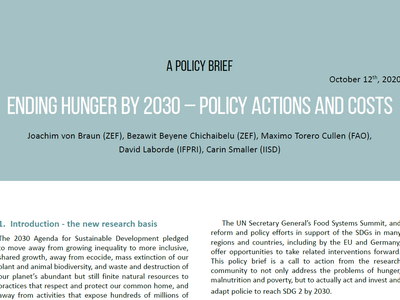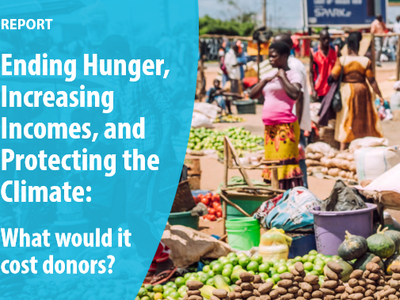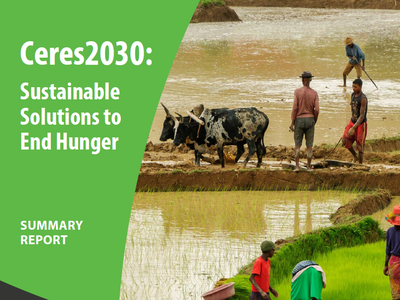Newsletter
Don't miss a thing!
We regularly provide you with the most important news, articles, topics, projects and ideas for One World – No Hunger.
Newsletter
Don't miss a thing!
We regularly provide you with the most important news, articles, topics, projects and ideas for One World – No Hunger.
Please also refer to our data protection declaration.
As the highlight of the world food week 2020, the German government invites a Nobel Prize winner, representatives of UN organizations, scientists and decision-makers to discuss the results of the Ceres2030 study and the ZEF/FAO report. Objective of the two studies was to determine how much public money should be invested in which measures to end hunger and malnutrition by 2030. The aim of the event is to provide new impulses for the achievement of SDG2 in the run-up to World Food Day on October 16, 2020, and to translate these into recommendations for action and solutions from the international community to the European Commission.
A world without hunger is possible – What must be done.

By Joachim von Braun (ZEF), Bezawit Beyene Chichaibelu (ZEF), Maximo Torero Cullen (FAO), David Laborde (IFPRI), Carin Smaller (IISD)

Report by David Laborde (IFPRI), Marie Parent (Cornell University) and Carin Smaller (IISD)

Investment and policy priorities for sufficient, nutritious and sustainable food supplies. A Study by ZEF.

Press release of the Federal Ministry for Economic Cooperation and Development (german only).

A Study by ZEF in cooperation with FAO

This collection presents, evidence-based recommendations from the Ceres2030 team on where to prioritize spending on interventions to achieve SDG2 by 2030.

A world without hunger is possible - it is within reach. So let's act: Summary report of the CERES2030 study by IFPRI, Cornell University and IISD.